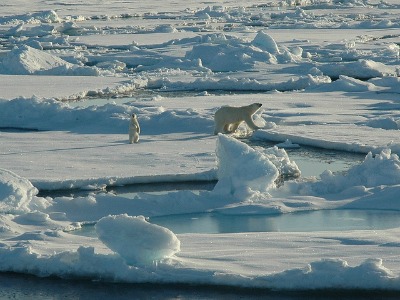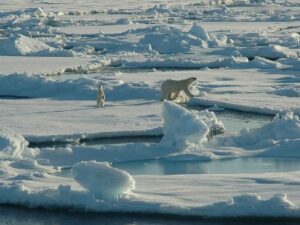
Short but sweet relief on Pebble as Arctic appeals heat up
in America's Arctic, Bristol Bay, Clean Air and Water, Climate Change, Litigation, Wild Lands & Wildlife
By Dawnell Smith
Significant court rulings can come in small but potent packages, like a recent U.S. Supreme Court order that declined a State of Alaska request. The State tried to go around the usual legal process by asking the nation’s highest court to hear its complaint concerning the U.S. Environmental Protection Agency’s prohibition of the proposed Pebble mine in Bristol Bay.
The Jan. 3 court order stated simply, “The motion for leave to file a bill of complaint is denied.”
What does this mean?
First and foremost, it means Gov. Dunleavy’s effort to shortcut the usual court process—filing a complaint in district court, obtaining a decision, and then seeking appellate review—failed. This gives Bristol Bay Tribes, advocates, and communities relief after decades fighting a mine that local communities and most Alaskans don’t want because it would turn a thriving watershed into an industrial zone. The fight will continue and it’s important to understand why.
What’s next?
The State of Alaska or, rather, Gov. Dunleavy, has consistently promoted the interests of the Pebble Partnership—the Alaska face of the Canadian corporation, Northern Dynasty Minerals—despite the majority of Alaskans opposing the project. Pebble would do devastating harm to Bristol Bay waterways and fish, with potentially catastrophic consequences to thriving salmon runs central to the region’s communities, cultures, and ways of life.
The EPA protected the region precisely because the evidence demonstrates the dire and existential threat that such a mine would pose to the region and everyone who lives there, not to mention to food economies vital to the state and world.
The attempt to jump straight to the Supreme Court to fulfill a special interest goal of undermining agency authority came up short, but if we know anything about extraction projects, it’s that those who profit from them will try and try again.
The Dunleavy administration and Northern Dynasty have said they will challenge the EPA’s protection of Bristol Bay in federal district court. We will continue to stand with clients, Tribes, partner groups, and Alaskans who will continue to fight for clean water, healthy fish, and local communities.
Ah, February, the month of love and oral arguments!
We’re heading to the U.S. Ninth Circuit Court in February to argue two appeals on cases aimed at ensuring agency decisions comply with the law and to protect Arctic health. Our Arctic legal team heads to San Francisco on Feb. 5 to argue our Willow appeal. We won a similar case in a lawsuit we brought in 2020 when the Trump administration approved the project. We filed our current lawsuit in March 2023, charging that the Biden administration illegally approved the project again.

Our Arctic legal team after argument on Willow in 2021. From left to right: Suzanne Bostrom, senior staff attorney; Bridget Psarianos, senior staff attorney; and Brook Brisson, senior staff attorney and Arctic team lead.
Willow would be the largest new oil and gas project proposed on federal lands in the U.S. It would impact people in Nuiqsut, a community just a few miles away that already experiences the harmful public health effects of rapid industrialization. It would also significantly produce carbon emissions and climate impacts.
Willow would expand ConocoPhillips’ extensive oil and gas extraction operation in the Arctic and become a hub for future industrialization, spewing out toxic emissions and greenhouse gas pollution. It would have dramatic impacts on local communities whose culture centers on caribou and subsistence practices. A recent study adds to the body of evidence and traditional knowledge showing that caribou are extremely sensitive to industry roads and that those roads could have significant impacts on their health.
Industry and political interests treat Willow like a done deal. We don’t. Whatever happens in the courtroom and on the ground, we will continue to hold decision-makers and oil operators accountable to industry’s obligations to the law and the impacts it has on land and water, animals and their habitat, and climate and local communities.
Polar bears, too
Just days after the Willow hearing, our Arctic team will argue before a different panel of Ninth Circuit judges in Portland, Oregon, concerning federal regulations that authorize oil and gas operators to harass polar bears in the southern Beaufort Sea and nearshore North Slope area.

Polar bears on ice floes in the Beaufort Sea. Photo by NOAA.
Harassment sounds bad because it is. Heavy equipment, aircraft, and a range of oil and gas activities can compel feeding bears to abandon the food they need to survive; force sows with cubs to leave dens during critical nursing and growth periods; and scatter bears when they are interacting. The Service’s regulations claim that oil activities’ impacts would be limited to harassment, but their own studies show that the activities planned over the next five years are essentially certain to injure or kill cubs trying to escape industrial incursions, leaving behind food or dens, and otherwise changing behavior due to industry.
We went to court in 2021 to challenge federal regulations allowing North Slope oil operators to harass polar bears. The District Court ruled against us, and we appealed in April 2023.
These polar bears are already profoundly threatened by climate change. Giving oil operators a free pass to disturb over half the population over the course of five years makes no sense when measures can be put in place to protect them.


